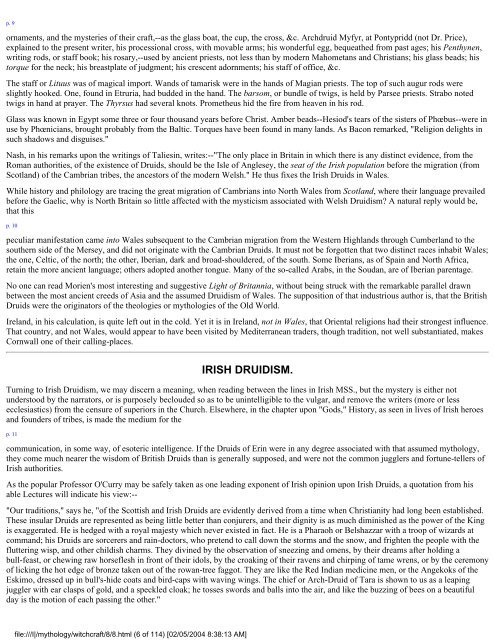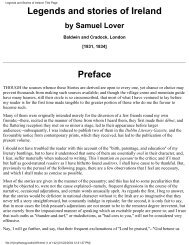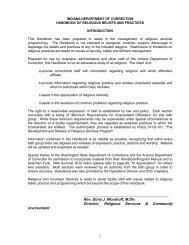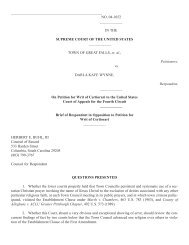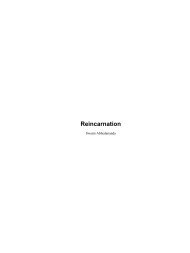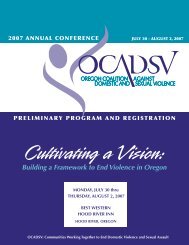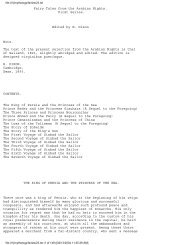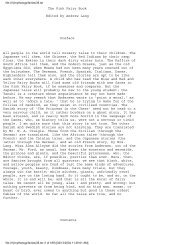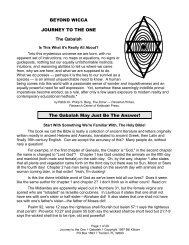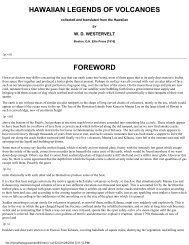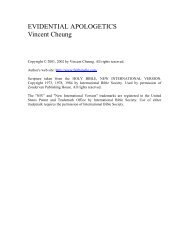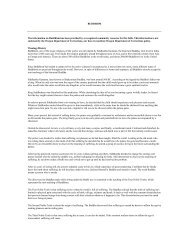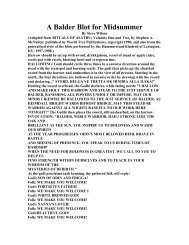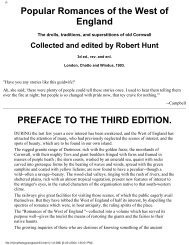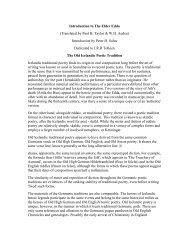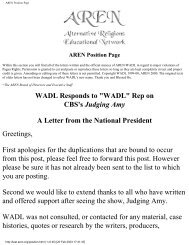Irish Druids And Old Irish Religions PREFACE CONTENTS
Irish Druids And Old Irish Religions PREFACE CONTENTS
Irish Druids And Old Irish Religions PREFACE CONTENTS
Create successful ePaper yourself
Turn your PDF publications into a flip-book with our unique Google optimized e-Paper software.
p. 9<br />
ornaments, and the mysteries of their craft,--as the glass boat, the cup, the cross, &c. Archdruid Myfyr, at Pontypridd (not Dr. Price),<br />
explained to the present writer, his processional cross, with movable arms; his wonderful egg, bequeathed from past ages; his Penthynen,<br />
writing rods, or staff book; his rosary,--used by ancient priests, not less than by modern Mahometans and Christians; his glass beads; his<br />
torque for the neck; his breastplate of judgment; his crescent adornments; his staff of office, &c.<br />
The staff or Lituus was of magical import. Wands of tamarisk were in the hands of Magian priests. The top of such augur rods were<br />
slightly hooked. One, found in Etruria, had budded in the hand. The barsom, or bundle of twigs, is held by Parsee priests. Strabo noted<br />
twigs in hand at prayer. The Thyrsus had several knots. Prometheus hid the fire from heaven in his rod.<br />
Glass was known in Egypt some three or four thousand years before Christ. Amber beads--Hesiod's tears of the sisters of Phœbus--were in<br />
use by Phœnicians, brought probably from the Baltic. Torques have been found in many lands. As Bacon remarked, "Religion delights in<br />
such shadows and disguises."<br />
Nash, in his remarks upon the writings of Taliesin, writes:--"The only place in Britain in which there is any distinct evidence, from the<br />
Roman authorities, of the existence of <strong>Druids</strong>, should be the Isle of Anglesey, the seat of the <strong>Irish</strong> population before the migration (from<br />
Scotland) of the Cambrian tribes, the ancestors of the modern Welsh." He thus fixes the <strong>Irish</strong> <strong>Druids</strong> in Wales.<br />
While history and philology are tracing the great migration of Cambrians into North Wales from Scotland, where their language prevailed<br />
before the Gaelic, why is North Britain so little affected with the mysticism associated with Welsh Druidism? A natural reply would be,<br />
that this<br />
p. 10<br />
peculiar manifestation came into Wales subsequent to the Cambrian migration from the Western Highlands through Cumberland to the<br />
southern side of the Mersey, and did not originate with the Cambrian <strong>Druids</strong>. It must not be forgotten that two distinct races inhabit Wales;<br />
the one, Celtic, of the north; the other, Iberian, dark and broad-shouldered, of the south. Some Iberians, as of Spain and North Africa,<br />
retain the more ancient language; others adopted another tongue. Many of the so-called Arabs, in the Soudan, are of Iberian parentage.<br />
No one can read Morien's most interesting and suggestive Light of Britannia, without being struck with the remarkable parallel drawn<br />
between the most ancient creeds of Asia and the assumed Druidism of Wales. The supposition of that industrious author is, that the British<br />
<strong>Druids</strong> were the originators of the theologies or mythologies of the <strong>Old</strong> World.<br />
Ireland, in his calculation, is quite left out in the cold. Yet it is in Ireland, not in Wales, that Oriental religions had their strongest influence.<br />
That country, and not Wales, would appear to have been visited by Mediterranean traders, though tradition, not well substantiated, makes<br />
Cornwall one of their calling-places.<br />
IRISH DRUIDISM.<br />
Turning to <strong>Irish</strong> Druidism, we may discern a meaning, when reading between the lines in <strong>Irish</strong> MSS., but the mystery is either not<br />
understood by the narrators, or is purposely beclouded so as to be unintelligible to the vulgar, and remove the writers (more or less<br />
ecclesiastics) from the censure of superiors in the Church. Elsewhere, in the chapter upon "Gods," History, as seen in lives of <strong>Irish</strong> heroes<br />
and founders of tribes, is made the medium for the<br />
p. 11<br />
communication, in some way, of esoteric intelligence. If the <strong>Druids</strong> of Erin were in any degree associated with that assumed mythology,<br />
they come much nearer the wisdom of British <strong>Druids</strong> than is generally supposed, and were not the common jugglers and fortune-tellers of<br />
<strong>Irish</strong> authorities.<br />
As the popular Professor O'Curry may be safely taken as one leading exponent of <strong>Irish</strong> opinion upon <strong>Irish</strong> <strong>Druids</strong>, a quotation from his<br />
able Lectures will indicate his view:--<br />
"Our traditions," says he, "of the Scottish and <strong>Irish</strong> <strong>Druids</strong> are evidently derived from a time when Christianity had long been established.<br />
These insular <strong>Druids</strong> are represented as being little better than conjurers, and their dignity is as much diminished as the power of the King<br />
is exaggerated. He is hedged with a royal majesty which never existed in fact. He is a Pharaoh or Belshazzar with a troop of wizards at<br />
command; his <strong>Druids</strong> are sorcerers and rain-doctors, who pretend to call down the storms and the snow, and frighten the people with the<br />
fluttering wisp, and other childish charms. They divined by the observation of sneezing and omens, by their dreams after holding a<br />
bull-feast, or chewing raw horseflesh in front of their idols, by the croaking of their ravens and chirping of tame wrens, or by the ceremony<br />
of licking the hot edge of bronze taken out of the rowan-tree faggot. They are like the Red Indian medicine men, or the Angekoks of the<br />
Eskimo, dressed up in bull's-hide coats and bird-caps with waving wings. The chief or Arch-Druid of Tara is shown to us as a leaping<br />
juggler with ear clasps of gold, and a speckled cloak; he tosses swords and balls into the air, and like the buzzing of bees on a beautiful<br />
day is the motion of each passing the other."<br />
file:///I|/mythology/witchcraft/8/8.html (6 of 114) [02/05/2004 8:38:13 AM]


